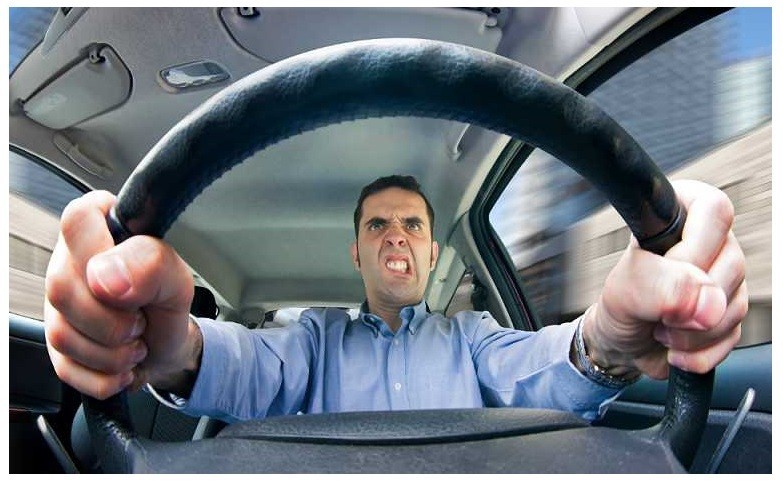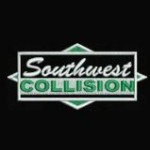Road Rage and Why It Is on the Rise
 Yelling, physical altercations and sometimes, although it’s hard to believe, even murder. What is this aggressive, violent behavior? It’s road rage and here are some interesting (and frightening) facts from Pampa about this epidemic, which is prevalent here in Pampa, TX and all over the rest of the country.
Yelling, physical altercations and sometimes, although it’s hard to believe, even murder. What is this aggressive, violent behavior? It’s road rage and here are some interesting (and frightening) facts from Pampa about this epidemic, which is prevalent here in Pampa, TX and all over the rest of the country.
During the 1990s, people began using the words “aggressive driving” to describe dangerous behavior on the road. Eventually, extremely aggressive driving became known as “road rage” after the phenomenon was chronicled in several forms of national media.
The National Highway Traffic Safety Administration (NHTSA) says road rage is when a driver "commits moving traffic offenses so as to endanger other persons or property; an assault with a motor vehicle or other dangerous weapon by the operator or passenger of one motor vehicle on the operator or passenger of another motor vehicle."
In 1990, the AAA Foundation for Traffic Safety studied more than 10,000 traffic accidents associated with violence. Over a seven-year period, the foundation found that 12,500 injuries were linked to violent acts, and that number has increased seven percent per year.
Behaviors associated with aggressive driving include:
- Following too closely
- Bumping other vehicles
- Driving at excessive speeds
- Weaving through traffic
- Running stop lights and signs
- Angry gestures
- Yelling
- Confrontations and physical assaults
Aggressive driving has become a major epidemic on our roadways. According to NHTSA, 94% of all traffic accidents are from driver error and 33% of these are linked to behavior common to road rage. Fatal accidents that involve enraged drivers has increased nearly ten-fold since 2004.
Do you regularly drive over the speed limit, tailgate, honk your horn excessively, use obscene gestures or yell while driving? If you are susceptible to road rage, consider taking steps to stop this behavior before it escalates out of control.
5 reasons road rage is on the rise:
- There are more vehicles on the road than ever before, leading to more traffic. Since 1987, the number of miles being driven has increased by approximately 35 percent, according to the University of Central Arkansas Police Department.
- In some areas of the country, many people work in suburbs with narrow, congested roads, which creates a rush hour during lunch time.
 With an increase in large sports utility vehicles, many drivers feel invulnerable to getting into an accident.
With an increase in large sports utility vehicles, many drivers feel invulnerable to getting into an accident.- Construction on aging roads has added time to commutes.
- A driver can develop a sense of anonymity and detachment in their vehicle, which lessens their inhibitions, leading to uncharacteristic behavior.
5 ways to handle road rage:
- Never make eye contact with an angry driver! Get away quickly or pull over
- Think twice before honking or using obscene gestures
- If you become angry, refocus your attention
- Don’t retaliate; be aware of the mayhem a road-rager can cause
- If harassed, go to the police
Whether it’s your road rage or someone else’s, learning to deal with aggressive driving will help everyone be safer on the road. We at Southwest Collision encourages everyone to drive safely, and to watch out of any incidents of road rage.
Sources: NHTSA, AAA and AARP






 Yelling, physical altercations and sometimes, although it’s hard to believe, even murder. What is this aggressive, violent behavior? It’s road rage and here are some interesting (and frightening) facts from Pampa about this epidemic, which is prevalent here in Pampa, TX and all over the rest of the country.
Yelling, physical altercations and sometimes, although it’s hard to believe, even murder. What is this aggressive, violent behavior? It’s road rage and here are some interesting (and frightening) facts from Pampa about this epidemic, which is prevalent here in Pampa, TX and all over the rest of the country. With an increase in large sports utility vehicles, many drivers feel invulnerable to getting into an accident.
With an increase in large sports utility vehicles, many drivers feel invulnerable to getting into an accident.
Social